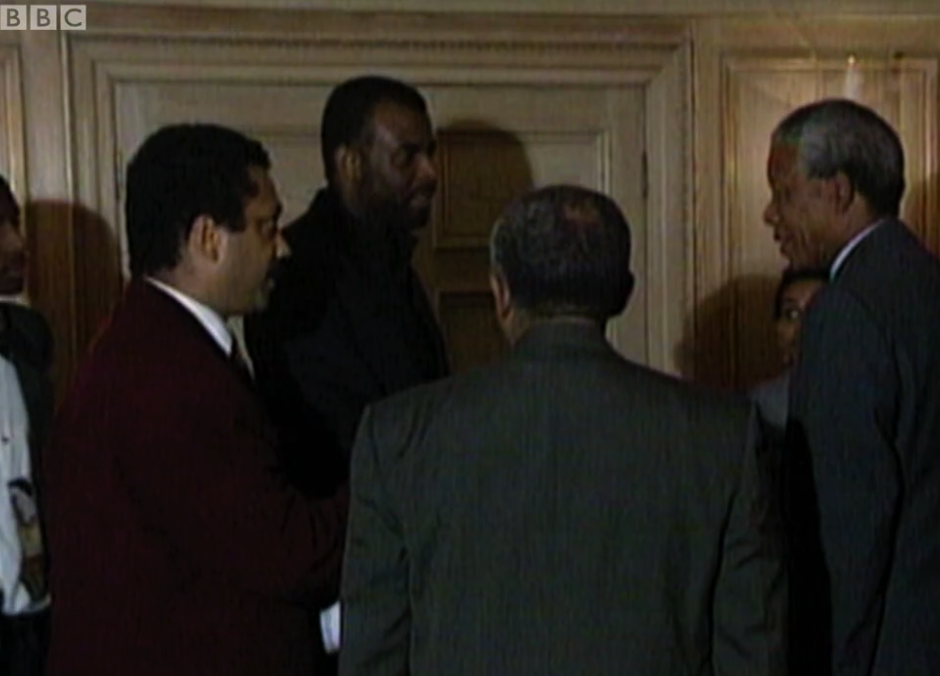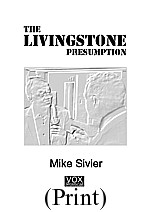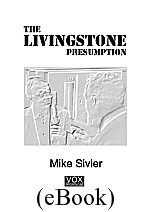Exposed: The distortions that made anti-Semitism smears possible
A great deal of attention has been given on the social media recently (although not the mainstream media, you notice) to the report by the Media Reform Coalition and Birkbeck on the mainstream media’s coverage of allegations of anti-Semitism in the Labour Party.
It found that there have been “prevalent errors, omissions and skews in the mainstream coverage”, and much of the reporting of it has focused on this headline.
This Writer found much of interest in the case studies, also – especially that which focused on Marc Wadsworth.
Mr Wadsworth has been in the news again recently, after he spoke in favour of Kerry-Anne Mendoza giving the Claudia Jones memorial lecture in his capacity as chair of the National Union of Journalists’ Black Members Council. His comments attracted the enmity of commentators of a certain political leaning, who referred critically to the incident at the launch of the Chakrabarti Report that led to accusations of anti-Semitism against him.
The MRC/Birkbeck report has this to say about it: “The immediate availability of a video recording of the incident offered a useful basis on which to assess the degree to which the activist, Mark Wadsworth, was accurately quoted in reports. Again, this reflects a common theme in much of the related coverage where contentious or controversial statements are paraphrased in reports in ways that can potentially distort their original context or meaning.
“Wadsworth accused Ruth Smeeth, a Jewish MP who had been critical of Corbyn on a range of issues (and especially antisemitism), of “working in hand in hand” with the Daily Telegraph. Given the immediate focus of the event, this was immediately interpreted by some as a veiled antisemitic attack, drawing on a racial stereotype of Jews controlling the media.
“On the face of it, however, Wadsworth’s comments seemed to reflect a widely-held concern amongst Labour members that centrist or right-wing MPs were ‘plotting’ to oust the elected leader of the party, and that this extended to collaboration with some of the Tory-supporting press. As it turned out, these concerns were well-founded as the event was swiftly followed by a wave of shadow cabinet resignations that was at least partly orchestrated with the media, including the BBC.
“Of crucial significance here was Wadsworth’s reference to an interaction he witnessed between Smeeth and a single reporter from a single newspaper. There was nothing in his original comment that either explicitly or implicitly generalized this interaction into a broader accusation of working with the right-wing press or media at large. Indeed, he was subsequently caught on camera having a private exchange with Jeremy Corbyn stating that he ‘outed’ Smeeth for “working with the
‘Torygraph’”. This would seem to support the view that Wadsworth’s charge was not one of collaborating or conspiring with the press in general.
“Yet this is precisely how Wadsworth was indirectly quoted in 13 out of 35 reports. At its most benign, such paraphrasing adopted words such as “colluding with the right-wing press” without any qualification… And at the extreme end of the spectrum Wadsworth was reported in the Sun as accusing Smeeth of being part of a “Jewish media conspiracy” and in a separate article, simply “attacking her for being Jewish”.”
The report added: “It would appear that several journalists had taken cues from Smeeth herself who, in a formal response, had alleged that Wadsworth used traditional antisemitic slurs to attack her “for being part of a ‘media conspiracy’”. In spite of the seriousness of the allegation, nearly half of the reports in the sample (15 out of 33) either quoted Smeeth directly or referred to her allegations without mentioning Wadsworth’s denial. This was a clear subversion of the journalistic principle of offering a right of reply to those who face reputational damage from an allegation of harm.
“This was all the more perplexing given that journalists did not have to rely on second hand accounts of what was said at the meeting. Many were in attendance of the launch which was also streamed live and the video footage – including the recorded interaction between Wadsworth and Smeeth – was easily and immediately accessible.”
The conclusion was: “Underlying the evidence presented here was a persistent subversion of conventional news values… Journalists covering the launch of Labour’s antisemitism report in 2016 routinely misquoted Mark Wadsworth in ways that invoked a notion of media conspiracy that was entirely absent from his original statement, in spite of the fact that a video recording of the event was readily and immediately accessible.”
I know from personal experience that the treatment of Marc Wadsworth was not a solitary case. Gabriel Pogrund’s Sunday Times article alleging that I was a Holocaust denier relied entirely on a ‘leaked’ report from Labour’s NEC which itself was based on allegations by the Campaign Against Antisemitism. My own original words were publicly available – and had been for more than a year, at the time his report was published.
Whilst I was contacted by Mr Pogrund prior to publication of his story, he did not give me a right of reply on the claims he made.
It is clear that this “persistent subversion of conventional news values” has become standard practice in mainstream media coverage of allegations of anti-Semitism against members of the Labour Party.
In light of the facts highlighted by the report, it seems clear that Labour’s National Constitutional Committee, which examines allegations against members, needs to revisit the case of Mr Wadsworth – and reconsider whether it should continue with the cases against myself and others who have suffered similar accusations.
And then the Labour leadership would be well-advised to consider suing the press outlets mentioned in the report, not only for wasting all our time but for libelling the party as a whole.
It is these so-called newspapers that have brought the Labour Party into disrepute, and not the members whose names they have dragged through the mud.
Visit our JustGiving page to help Vox Political’s Mike Sivier fight anti-Semitism libels in court
Vox Political needs your help!
If you want to support this site
(but don’t want to give your money to advertisers)
you can make a one-off donation here:
Here are four ways to be sure you’re among the first to know what’s going on.
1) Register with us by clicking on ‘Subscribe’ (in the left margin). You can then receive notifications of every new article that is posted here.
2) Follow VP on Twitter @VoxPolitical
3) Like the Facebook page at https://www.facebook.com/VoxPolitical/
Join the Vox Political Facebook page.
4) You could even make Vox Political your homepage at http://voxpoliticalonline.com
And do share with your family and friends – so they don’t miss out!
If you have appreciated this article, don’t forget to share it using the buttons at the bottom of this page. Politics is about everybody – so let’s try to get everybody involved!
Buy Vox Political books so we can continue
fighting for the facts.
The Livingstone Presumption is now available
in either print or eBook format here:
Health Warning: Government! is now available
in either print or eBook format here:
The first collection, Strong Words and Hard Times,
is still available in either print or eBook format here:










The Guardian moderators systematically removed any and all references to this report from their readers comments sections.